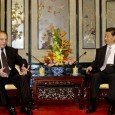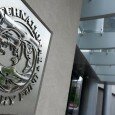By Khalid Mustafa –
Pakistan is fast losing Afghan market
In an alarming development, Pakistan seems to be fast losing its the market of landlocked Afghanistan which can be gauged by the fact that country’s exports have tumbled by whopping 30.24 percent from $ 1.379 billion to $ 962.6 million just in one year period from financial year 2011-2012 to 2012-2013, according to documents exclusively available with The Pique.
NATO forces have also halted the import of petroleum products that mainly include JP-I and JP-4 due to threats of attacks on NATO tankers. Pakistan’s fertilizers’ exports, valuing $ 70-80 million, were stopped by US as fertilizers are also used to make internal explosive devices (IED). The administration in Kabul, influenced by India, has decided not to rely on Pakistan for all of its imports and adopted a multi-pronged policy to import various items from India and Central Asian States, the top officials at Ministry of Commerce sad in several interviews.
“This approach has inflicted a huge loss on exports of Pakistani products,” the officials said. Kabul administration in a bid to discourage imports from Pakistan has also increased customs duty from 5 to percent on Pakistani products. “The raise in custom tariff would compromise the competitiveness of Pakistani products with products of other countries in the market of Afghanistan,” according to documents by the Pakistani ministry of Commerce. The documents show that export of $200-300 million to Afghanistan gets reduced in every year which is very disappointing for the authorities in Pakistan.
Under the new scenario, the officials think that India is managing to capture Pakistan’s share in Afghanistan. “China is also making inroads to create the space for its products in Afghanistan and top of it, Iran has also entered into Afghanistan markets,” Pakistani officials say. The export data shows that Afghanistan was the third largest country in 2011-12 in terms of the exports of Pakistani products. And now the war ravaged country has downgraded by three grades more to number six from number three in the list of the countries where in Pakistan exports its items.
When contacted, Mr. Munir Yousafzai, the commercial attaché in Afghanistan embassy, in a diplomatic answer, said that it is true to some extent that Afghanistan has decided not to rely on imports from Pakistan but maintained that Pakistan is still the largest exporter to Afghanistan. He brushed aside the impression that Kabul administration has adopted the new import strategy, influenced any other country. Afghanistan imports the items from where it gets better rates and this is the prerogative of the buyer to procure items at affordable rates, he said.
The diplomat maintained that total trade and import business of Afghanistan stands at $9 billion out of which trade with Pakistan hovers around $2.5 billion. In $ 2.5 billion, Pakistan’s exports to Afghanistan stand at 90 percent. Pakistan imports dry fruits, marbles and some other items from Afghanistan. Mr Yousaf Zai said that his country imports various items from many countries that include Japan, Brazil, Malaysia, Central Asian States, Iran, USA and others. However, he admitted that trade with India is on the rise. When asked why Afghanistan is hesitant to extend the transit for Pakistan products to reach Central Asian States, he said that this is not true as all dry ports in Afghanistan are open for Pakistan products so that they could reach the markets of the Central Asian States.
However, the sources in Pakistani Commerce ministry insisted that Afghanistan ‘s intentions are questionable as the authorities at Kabul are playing a bluff with Islamabad and apparently are not interested in signing the trilateral transit agreement. And, Pakistan officials think that Kabul, under influence of New Delhi,”is hesitant to help Pakistan in having the access to Tajikistan market through a transit accord,” an official said. Pakistan traders have to pay duties three times on the way to Tajikistan in Afghanistan territory, owing to which the prices of the Pakistan’s products in Tajikistan become uncompetitive. To a question, Mr Yousaf Zai said that the proposal of initiating talks for Free Trade Agreement (FTA) between Pakistan and Afghanistan is under active consideration and once the FTA gets signed, the trade between the two neighboring countries would further increase. Saeed Jan, the Director Afghan Transit Trade, when contacted by Pique, told that Pakistan exports have dwindled because of many reasons but one of the main reasons is cancellation of import orders of petroleum products by NATO forces.
After Salala incident, NATO forces administration canceled import of PoL products from Pakistan due to threats and attacks on NATO trailers. Now, they are importing JP-1 and JP-4 and other products from Turkmenistan and Uzbekistan. However, the needs of other petroleum products in Afghanistan are being catered to from the Iranian oil. In the wake of US sanctions, Iran is unable to sell out its PoL products to the world and by taking the advantage of the economic curbs, the importers in Afghanistan manage to get Iranian oil products at cheaper rates and cater to general demand of Afghanistan.
Dr Saeed Jan also said that some importers influenced by other countries in Afghanistan have slashed down the quota of Pakistan in cement which is why the export of cement has also diminished. However, the official sources mentioned some other reasons also. On account of the energy crisis in Pakistan and increase in gas and power tariffs, exports of cement and other items have reduced as these items are no more competitive in Afghanistan’s market, which is also flooded with items from other countries.
Mr Zahid Hussein, an eminent business person who is dealing trade with Afghanistan for the last 20 years, said that law and order situation, huge increase in gas and electricity prices are the factors owing to which the cost of the consumers items, food items and other main items have increased manifold in Pakistan and are no more competitive in Afghanistan market. He said that export of wheat to Afghanistan has reduced manifold as the wheat price in Pakistan has surged because of the huge hike in support price to wheat growers in the country. This has expelled the Pakistani wheat from international trade as the wheat price is much lower in global market.
Now Afghanistan, Mr Hussein said, is importing the wheat from some Central Asian States and Russia instead of importing from Pakistan. He said that transit facilities have also been increased to Afghanistan enabling it to import food and other consumers’ items from Dubai, Bangkok and many other countries. This has also dented the export of Pakistan to Afghanistan.
The writer is a journalist based in Islamabad































































































